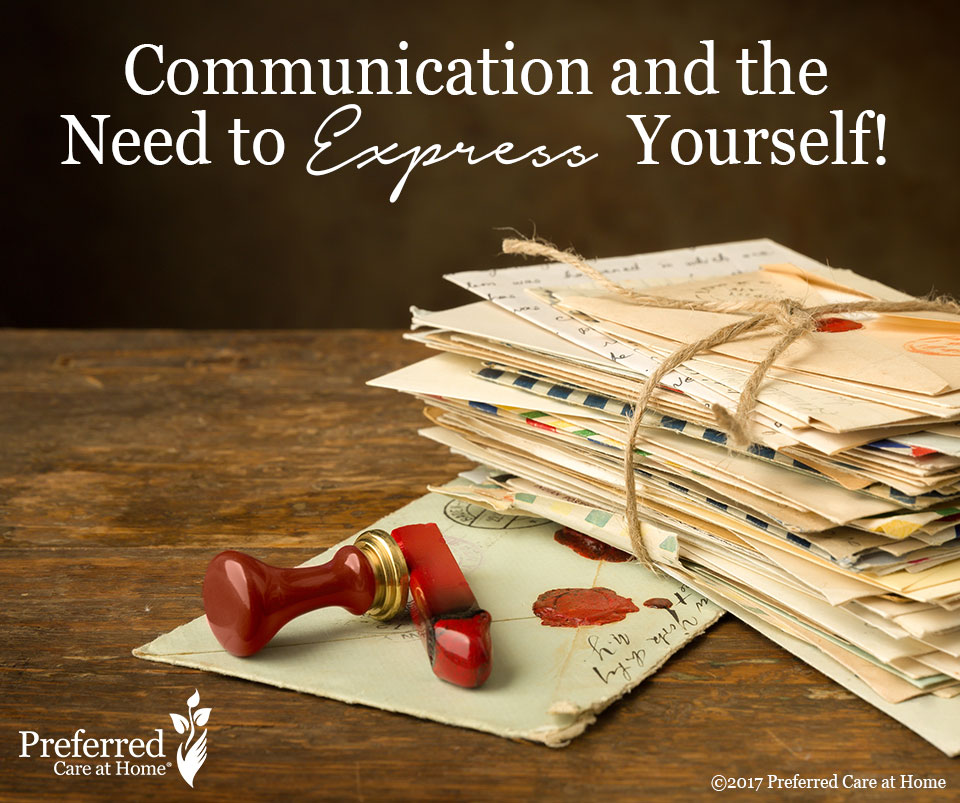Communication and the Need to Express Yourself!
Published April 14, 2017 by Ashly Luckose, Esq. in Senior Health & Wellness

It was an April like this one, a hundred and fifty-eight years ago, that communication took a leaping gallop towards the incredible and instant connections we tend to take for granted today.
It was an April like this one, a hundred and fifty-eight years ago, that communication took a leaping gallop towards the incredible and instant connections we tend to take for granted today.
In those days, communication speeds weren’t measured in megabits per second. No, back then it was all about horse power!
And no one had more horse power than the Pony Express.
At its peak, the Express had around 400 horses, along with 120 riders, and 184 stations dotting the 1,900-mile-long route between California and Missouri and the traditional east coast mail delivery routes.
For the first time, letters could be sent from one end of the country to the other in just 10 or so days – which you know is a pretty big deal, especially if you have played the game Oregon Trail.
But like with most amazingly ambitious things, the Express did not last long. It lasted less than 4 years, as its founders were bested by a potent combination of political back deals and the advent of the telegram.
But it continues to be remembered as a milestone in communication, which is an ability as central to humans as eating, sleeping, and breathing.
We are social beings, and we are typically at our happiest and healthiest when we are able to communicate and share our lives and words with others. Unfortunately, as we age, it becomes harder and harder to maintain our social interactions with those around us.
You may have noticed this with your aging loved ones. If so, it is vital that you take steps to bridge that communication gap. If you do not know how to start the process of interacting with your loved one, the American Speech-Language-Hearing Association (ASHA) has the following tips that could help:
- Reduce background noises that may be distracting (e.g., turn off the radio or TV, close the door, or move to a quieter place)
- Begin the conversation with casual topics (e.g., the weather or what the person had for lunch). Avoid crucial messages at the beginning.
- Talk about familiar subjects such as family members and special interests of the person
- Stick to a topic. Avoid quick shifts from topic to topic.
- Keep sentences and questions short.
- Give older persons a moment to reminisce. Their memories are important to them.
- Allow extra time for responding. Don’t hurry them.
- Give the older person choices to ease decision making. (e.g., “Do you want tea or coffee?” rather than “What do you want to drink?”)
- Be an active listener. Look for hints from eye gaze and gestures. Take a guess (e.g., “Are you talking about the TV news? Yes? Tell me more. I didn’t see it.”)
It won’t be easy, but it is kind and noble to help fellow human beings express themselves! And if you need assistance in undertaking something this ambitious, you can always reach out to those who have dedicated their lives to the cause of companionship and communication. Contact a Preferred Care at Home location near you.
If you have questions about senior home
care services or if you want to start care:
Related Posts

November 9, 2023
Celebrating Robert Louis Stevenson’s Birthday: Exploring the Legacy of ‘Jekyll & Hyde
Ashly Luckose, Esq.

November 3, 2023
Visiting Grandparents During the Holidays: Preparing Kids with Books on Aging
Gina Farmer

October 19, 2023
Preventing Osteoporosis: Essential Tips for Stronger Bones Post-Menopause
R. Bradley Robinson, M.D.
Helping seniors age in place, with dignity & grace.